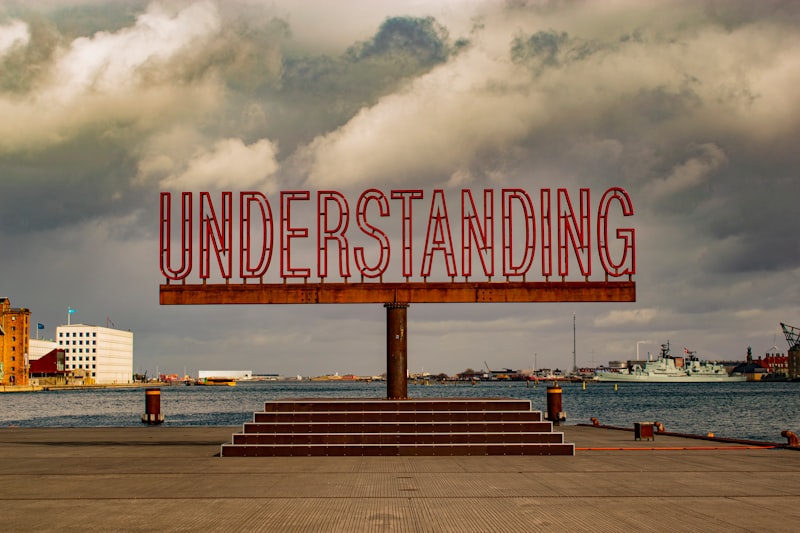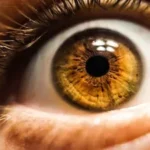- Eyeless dreams symbolize a loss or lack of vision and control in our lives, representing a deeper exploration of our inner selves.
- These dreams evoke emotions such as fear, vulnerability, and insecurity, reflecting our need for protection and a clearer understanding of ourselves.
- Eyeless dreams may reveal insecurities and a desire for validation or acceptance, inviting us to confront our fears and develop a positive sense of self.
- Personal life experiences influence the symbolism of eyeless dreams, with work-related stress, relationship issues, and emotional struggles being potential factors.
Have you ever had a dream where you or someone else had no eyes? The symbolism behind these dreams is fascinating and can offer valuable insights into our psyche and spiritual beliefs. Let’s explore the significance of eyeless dreams and what they can reveal about ourselves.
Understanding Eyeless Dreams

Eyeless dreams are a fascinating and enigmatic phenomenon that often leave us perplexed and searching for meaning. These dreams, characterized by the absence of eyes, hold significant symbolism and can offer valuable insights into our innermost thoughts and emotions. In this article, we will explore the definition and symbolism of eyeless dreams, delve into the emotional and psychological interpretations of these dreams, explore the correlation between personal life experiences and no-eyes dreams, and provide guidance on how to understand and interpret these dreams.
1. Definition and Symbolism of Eyeless Dreams
Eyeless dreams refer to dreams in which the dreamer or other individuals within the dream lack eyes. The absence of eyes in these dreams holds profound symbolism, representing various aspects of our perception, identity, and understanding of ourselves and the world around us. Eyes are often considered the windows to the soul, providing insight into our thoughts, emotions, and subconscious desires. Therefore, when we dream of not having eyes or encountering others without eyes, it signifies a deeper exploration of our inner selves.
2. Emotional and Psychological Interpretation of Dreams Without Eyes
Eyeless dreams can evoke a range of emotions including fear, vulnerability, and insecurity. The absence of eyes represents a loss or lack of vision and control in our lives. Psychologically, these dreams may reflect our fears of losing sight or being unable to perceive our surroundings. They may also signify a sense of vulnerability or helplessness. Eyeless dreams can arise during times of uncertainty or when we feel overwhelmed by life’s challenges, highlighting our need for protection and a clearer understanding of ourselves.
Moreover, eyeless dreams may reveal insecurities and a desire for validation or acceptance. The absence of eyes can symbolize a lack of self-esteem or self-worth. These dreams often manifest as a fear of being judged or misunderstood by others. They invite us to confront our insecurities and develop a positive sense of self.
Additionally, eyeless dreams can suggest a yearning for a fresh perspective. They symbolize a need to break free from routine and explore new ideas or ways of looking at things. These dreams may arise when we feel stuck or stagnant in our current life circumstances, calling us to embrace change and open our minds to new possibilities. By seeking a fresh perspective, we can overcome obstacles and find innovative solutions to life’s challenges.
3. The Correlation Between Personal Life Experiences and No-Eyes Dreams
Our personal life experiences often influence the symbolism and meanings behind eyeless dreams. These dreams can arise from various factors such as work-related stress, relationship issues, emotional struggles, or major life changes. By reflecting on our current life circumstances, we can gain valuable insights into the possible interpretations of these dreams.
For example, if we are experiencing challenges at work, eyeless dreams may symbolize a fear of losing control or a lack of clarity in our professional lives. Relationship tensions may manifest as eyeless dreams, reflecting a sense of vulnerability or insecurity in our personal connections. Emotional struggles may contribute to feelings of helplessness or being unable to see the way forward, as represented by the absence of eyes.
By identifying the possible connections between our personal experiences and no-eyes dreams, we can gain a clearer understanding of the subconscious messages these dreams convey. It is important to approach this reflection with an open mind and a willingness to explore our emotions and circumstances.
4. Interpreting and Understanding Eyeless Dreams
To interpret and understand eyeless dreams, it is helpful to keep a dream journal. Recording the details of each dream upon waking allows us to capture as much information as possible. Include any emotions, symbols, or recurring themes that stood out during the dream. Over time, patterns may emerge, offering valuable insights into the deeper meanings behind these dreams.
Reflecting on our current life circumstances is also crucial for interpreting eyeless dreams. Consider any significant events or challenges you are currently facing and reflect on how they may be influencing your dream experiences. Furthermore, seeking guidance from a dream expert or therapist can provide additional insights and support in understanding the hidden meanings behind these dreams. They can offer fresh perspectives, ask insightful questions, and guide us on our journey of self-discovery.
Spiritual Connotations of Eyeless Dreams

Eyeless dreams can hold profound spiritual meanings, providing insights into our subconscious and inviting us to explore the depths of our spiritual selves. These dreams often convey messages about our perception, identity, and connection to higher consciousness. In this section, we will explore the spiritual connotations of eyeless dreams, delving into their symbolism and hidden meanings.
1. Spiritual Blindness and Deception Represented by No-Eyes Dreams
In the realm of spirituality, eyes are often seen as the windows to the soul. They represent our ability to see beyond the physical realm and gain spiritual insights. When we dream of having no eyes or encountering others without eyes, it may symbolize a form of spiritual blindness or a lack of awareness.
Eyeless dreams can suggest that we are unable to see the true intentions or hidden truths in our waking life. They may indicate a sense of deception or a need for discernment in our relationships. These dreams serve as reminders to trust our intuition and seek clarity in our interactions with others.
2. Possible Threats Suggested by Dreams of Others with No Eye Sockets
Dreams featuring individuals with no eye sockets can raise feelings of unease and suggest a possible threat or danger in our waking life. These dreams may signify a need for increased vigilance and protective measures.
Seeing others without eye sockets in dreams can represent a sense of vulnerability or powerlessness. It may indicate that we feel exposed or defenseless in certain aspects of our life, such as relationships or work. These dreams serve as cues to establish healthy boundaries and protect ourselves from potential harm.
3. Spiritual Perception Reflected Through the Symbolism of Eyes
Eyes are closely associated with perception and insight in the spiritual realm. They represent our ability to perceive beyond the physical senses and tap into higher consciousness. When we dream of seeing without eyes, it symbolizes an enhanced spiritual perception or inner vision.
Dreams of seeing without eyes reveal a heightened sense of intuition and the capacity to perceive subtle energies. These dreams suggest that we possess a deeper level of awareness and understanding that transcends the limitations of physical sight. They encourage us to trust our inner wisdom and rely on our intuition when making important decisions.
4. Illuminating the Path of Spiritual Awakening
Eyeless dreams can offer glimpses into the realm of spiritual awakening and transformation. They invite us to embark on a journey of self-discovery and explore the depths of our consciousness. By transcending our fears and embracing our spirituality, we can unlock hidden potentials and gain a deeper understanding of ourselves and the universe.
These dreams may indicate a desire for a fresh perspective and a shift in our perception of reality. They serve as reminders to venture beyond the limitations of our physical senses and tap into the limitless potential within us. Eyeless dreams are an invitation to awaken our spiritual consciousness and embark on a path of enlightenment.
5. Embracing Personal Growth and Spiritual Insights
To fully embrace the spiritual connotations of eyeless dreams, it is essential to engage in self-reflection and personal growth. By keeping a dream journal, reflecting on our current life circumstances, and seeking guidance from experts or therapists if needed, we can deepen our understanding of these dreams.
Engaging in practices such as meditation, mindfulness, and spiritual exploration can also enhance our spiritual perception and insight. These practices help us cultivate awareness, connect with our inner wisdom, and unlock the spiritual potential within us.
Cultural and Religious Interpretations

Dreams have long been a subject of fascination and interpretation in various cultures and religions around the world. From biblical implications to European folklore to Indian and Islamic traditions, eyeless dreams have been viewed through different cultural lenses, shedding light on their significance and hidden meanings. In this section, we will explore various cultural and religious interpretations of eyeless dreams.
Biblical Implications of Dreaming About Having No Eyes
In biblical literature, dreams play a significant role, often serving as a means of divine communication. The absence of eyes in dreams can be associated with the concept of spiritual blindness or the inability to see the truth. According to the Bible, in Mark 7:13-23, the evil eye is mentioned as an element of consciousness capable of exerting one’s will.
Dreams involving the absence of eyes may indicate spiritual blindness or a resistance to acknowledging the truth. They can symbolize a fear of facing reality or a reluctance to accept difficult truths in waking life. Such dreams invite individuals to confront their fears and open their eyes to what may be hidden or concealed.
European (Judeo-Christian) Interpretations of Eyes in Dreams
European interpretations of eyes in dreams draw upon Judeo-Christian traditions and folklore. Eyes are often seen as windows to the soul and representations of perception, awareness, and understanding. In European cultures, eye-related dreams hold symbolic significance that reflects personal and societal beliefs.
1. Protection and Insight
Dreaming of eyes can signify protection and insight in European interpretations. It suggests that divine guidance or a higher power is watching over and offering support during challenging times. Eye-related dreams may be seen as an invitation to trust one’s intuition and rely on inner wisdom for guidance.
2. Clarity and Revelation
Eyes are associated with clarity and revelation. Dreams featuring clear, vibrant eyes can indicate that one’s questions will be answered or that insights and revelations are forthcoming. These dreams may prompt individuals to trust in the process of self-discovery and embrace newfound knowledge or understanding.
3. Judgment and Accountability
European interpretations also link eyes to judgment and accountability. Dreams involving eyes may signify a need for self-reflection and examination of one’s actions, choices, and responsibilities. Eye-related dreams can serve as reminders to act with integrity and be aware of the consequences of one’s decisions.
Indian (Hinduism) Interpretations and What They Reveal About Eyeless Dreams
In Hinduism, dreams are believed to convey messages from deities or can be seen as reflections of past lives or karmic patterns. The symbolism of eyes in Hindu interpretations is rooted in the concept of darsana, which means vision or insight. Eyeless dreams in Indian culture signify a profound spiritual journey or a shift in perception.
4. Awakening of Inner Vision
Eyeless dreams in Hindu interpretations emphasize the awakening of inner vision or spiritual insight. The absence of physical eyes represents the ability to perceive beyond the limitations of the material world and tap into higher realms of consciousness. These dreams invite individuals to trust their intuition and embrace a deeper understanding of themselves and the universe.
5. Transcendence of Physical Limitations
The symbolism of eyelessness in Hindu interpretations suggests liberation from physical limitations and attachments. Such dreams signify a journey toward self-realization and the realization of the divine within oneself. They encourage individuals to transcend worldly desires and seek a deeper connection with their innermost selves.
6. Connection with Divine Wisdom
Eyeless dreams in Hindu thought symbolize a connection with divine wisdom or enlightenment. They indicate a pursuit of spiritual knowledge and an invitation to explore mystical realms of consciousness. These dreams prompt individuals to trust in their own spiritual journey and seek answers beyond conventional understanding.
Islamic Views on Vision-Related Dreams
In Islamic culture, dreaming is considered an important aspect of spiritual exploration and communication. Dreams are believed to be a means of receiving divine messages and guidance from Allah. Eye-related dreams in Islamic interpretations hold significance and are seen as opportunities for reflection and personal growth.
7. Spiritual Awakening
Eyeless dreams in Islamic interpretations can symbolize a spiritual awakening or a heightened state of consciousness. They represent an invitation to delve deeper into one’s connection with Allah and seek a closer relationship with the divine.
8. Reflection and Self-Examination
Eye-related dreams prompt individuals to engage in self-reflection and examine their thoughts, actions, and intentions. These dreams serve as reminders to align one’s beliefs and behaviors with the teachings of Islam and strive for righteousness and moral integrity.
9. Seeking Divine Guidance
Eye-related dreams offer an opportunity to seek divine guidance and clarification on spiritual matters. They encourage individuals to turn to prayer and seek Allah’s wisdom in making important decisions or resolving internal conflicts.
It is important to note that individual interpretations of eyeless dreams may vary within each culture or religious belief system. The meaning of these dreams is highly subjective and can be influenced by personal experiences, beliefs, and cultural background.
To interpret eyeless dreams from cultural or religious perspectives, individuals can reflect on their own beliefs, consult religious texts or leaders, or seek insight from experts within their respective cultural or religious communities.
Psychological Viewpoint of Eyeless Dreams

Eyeless dreams, with their intriguing symbolism and perplexing imagery, offer us a glimpse into the depths of our subconscious mind. From a psychological perspective, these dreams can be interpreted in various ways, shedding light on our fears, anxieties, and desires. In this section, we will explore the psychological viewpoint of eyeless dreams, delving into the role of confusion, disappointment, and hurt in these dreams, as well as interpreting the occurrence of bleeding eyes.
1. The Role of Confusion, Disappointment, and Hurt in No-Eyes Dreams
Eyeless dreams often revolve around a sense of confusion, disappointment, and hurt. The absence of eyes in these dreams symbolizes a loss of perception and understanding. This may reflect our deep-seated fears of being misled or deceived by others or feeling disconnected from our own emotions. Such dreams can leave us feeling perplexed and uncertain about our path in life.
In no-eyes dreams, confusion plays a central role. The dreamer may experience a lack of clarity or understanding in their waking life, unable to see things clearly or make sense of their circumstances. This confusion may stem from unresolved issues or internal conflicts that need to be addressed.
Disappointment is another common emotion associated with eyeless dreams. Dreaming about having no eyes or encountering others without eyes can represent a deep sense of disappointment or disillusionment. The dreamer may have experienced letdowns or betrayals in their relationships or struggles to meet their own expectations. These dreams serve as reminders to confront and process these feelings of disappointment in order to move forward.
Hurt is often intertwined with confusion and disappointment in eyeless dreams. The absence of eyes symbolizes vulnerability and emotional pain. It represents wounds that have not yet healed or unresolved trauma from our past. By exploring these feelings of hurt and acknowledging their presence in our lives, we can begin the healing process and find inner peace.
2. Psychologically Interpreting the Occurrence of Bleeding Eyes in Dreams
The occurrence of bleeding eyes in dreams carries strong psychological significance. It represents the release of repressed emotions and a deep yearning for emotional healing. Dreams featuring bleeding eyes can be interpreted in the following ways:
- Releasing Repressed Emotions
Bleeding eyes in dreams signify a need to release pent-up emotions and free ourselves from emotional burdens. These dreams often indicate that we have been suppressing our feelings, and they are now seeking a way to manifest themselves. - Emotional Healing and Catharsis
The bleeding of eyes in dreams can also symbolize a cathartic process of emotional healing. It signifies the need to let go of past hurts and allow ourselves to experience the release of built-up emotions. By acknowledging and honoring our emotions, we can find inner peace and healing. - Reclaiming Emotional Strength
Dreams of bleeding eyes can serve as a call to reclaim our emotional strength and resilience. They remind us that we have the power to confront and overcome emotional challenges. By acknowledging our pain and allowing ourselves to heal, we can regain our emotional equilibrium and find renewed strength.
The interpretation of eyeless dreams, including those featuring bleeding eyes, should take into account personal experiences and emotions. The meaning behind these dreams may vary from person to person, depending on their unique circumstances and history. It is essential to view these dreams as opportunities for self-reflection and growth, allowing us to explore our deepest fears, desires, and aspirations.
3. Embracing Personal Growth and Resilience in Eyeless Dreams
Eyeless dreams challenge us to embrace personal growth and resilience. They provide an opportunity for introspection, self-reflection, and exploration of our deepest fears, insecurities, and desires. By taking the following steps, we can navigate the complexities of eyeless dreams and foster personal growth:
- Acknowledging and Processing Emotions
Eyeless dreams often evoke strong emotions, such as confusion, disappointment, and hurt. By acknowledging and exploring these emotions, we can gain a better understanding of ourselves and work towards emotional healing. - Seeking Support and Guidance
If eyeless dreams are causing distress or interfering with daily life, seeking support from a therapist or dream expert can be beneficial. These professionals can provide guidance, tools, and techniques to help navigate the complexities of dream symbolism and foster personal growth. - Cultivating Self-Awareness
Eyeless dreams encourage us to cultivate self-awareness by reflecting on our thoughts, feelings, and behaviors. Through self-reflection, we can uncover patterns, triggers, and underlying beliefs that may contribute to the symbolism present in our dreams. - Embracing Resilience
Eyeless dreams prompt us to embrace resilience and adaptability in the face of uncertainty. By acknowledging our fears and vulnerabilities, we can build inner strength and find creative ways to navigate through life’s challenges.
Navigating and Understanding Eyeless Dreams

Eyeless dreams can be enigmatic and leave us perplexed, searching for their deeper meanings. These dreams, shrouded in symbolism, offer a glimpse into the depths of our subconscious and invite us to explore the mysteries within. Navigating and understanding eyeless dreams requires delving into the significance of other symbols present in the dream, utilizing a dream journal to decipher meanings, seeking guidance from dream experts or therapists, and embracing personal growth and resilience.
1. The Significance of Other Symbols Present in the Dream
In eyeless dreams, it is essential to consider the significance of other symbols present in the dream. These symbols provide context and additional insights into the dream’s meaning. For example, if there are other characters without eyes, it may suggest a lack of understanding or connection with those individuals. Alternatively, if there are blindfolds in the dream, it could represent a sense of restriction or being purposely kept in the dark. Paying attention to these symbols allows for a more comprehensive interpretation of eyeless dreams.
2. Using a Dream Journal to Decipher Meanings Behind Eyeless Dreams
One effective way to navigate and understand eyeless dreams is by using a dream journal. Keeping a record of your dreams as soon as you wake up allows you to capture details, emotions, and symbols that may be integral to their meaning. In your dream journal, include any other significant symbols present in the dream and reflect on their possible associations with your waking life. Over time, patterns and themes may emerge, providing a clearer understanding of the messages hidden within your eyeless dreams.
To enhance your dream journal practice:
- Keep a pen and notebook by your bed to ensure you can write down your dreams immediately upon waking.
- Include vivid descriptions of the scenes, people, emotions, and symbols present in the dream.
- Reflect on how these symbols relate to your current life circumstances and any unresolved issues or emotions you may be experiencing.
- Look for recurrent symbols or themes that appear in multiple eyeless dreams, as they may hold deeper significance.
- Consider the emotions evoked by the dream and how they connect to your waking life experiences.
By consistently using a dream journal and reflecting on the symbols and emotions present in your eyeless dreams, you can gain a deeper understanding of their relevance and uncover valuable insights into your subconscious mind.
3. Seeking Guidance from Dream Experts or Therapists for Interpreting Eyeless Dreams
Interpreting eyeless dreams can be complex and challenging. In cases where their meanings remain elusive, seeking guidance from dream experts or therapists can provide valuable insights and support. These professionals have extensive knowledge and experience in analyzing and understanding dream symbolism, helping you navigate the depths of your subconscious mind.
A dream expert or therapist can:
- Provide a fresh perspective
By sharing details of your eyeless dreams with a professional, they can offer unique insights and interpretations that you may not have considered. Their expertise allows them to identify patterns, symbolism, and underlying emotions within the dreams. - Ask guiding questions
Dream experts or therapists will ask specific questions about the details, emotions, and symbols present in your dreams. These questions prompt deep reflection and analysis, aiding in uncovering the hidden meanings of your eyeless dreams. - Offer coping strategies
If your eyeless dreams are causing distress or interfering with your daily life, a therapist can provide coping strategies to help you manage any anxiety or fear associated with these dreams. They can also assist you in addressing any underlying issues that may be contributing to the recurring nature of these dreams. - Support personal growth
Professionals in dream analysis can guide you on a journey of self-discovery and personal growth. Through therapy sessions, they can help you explore unresolved conflicts, fears, and insecurities reflected in your eyeless dreams. This process facilitates personal growth, resilience, and a deeper understanding of yourself and your dreams.
Seeking guidance from a dream expert or therapist is not an admission of weakness but a proactive step toward understanding yourself on a deeper level. These professionals provide invaluable insights and support, facilitating your interpretation of eyeless dreams and aiding in your personal growth and well-being.
4. Embracing Personal Growth and Resilience
Navigating eyeless dreams requires embracing personal growth and resilience. These dreams often tap into our deepest fears, vulnerabilities, and desires for transformation. By embracing the messages these dreams convey, we can gain a deeper understanding of ourselves and cultivate resilience in the face of uncertainty.
To embrace personal growth and resilience:
- Reflect on emotions and symbolism
Explore the emotions and symbolism present in your eyeless dreams. Reflect on how these elements relate to your waking life experiences, fears, and desires. - Address unresolved issues
Eyeless dreams may highlight unresolved conflicts, fears, or insecurities. Take steps to address these underlying issues through self-reflection, therapy, or seeking support from loved ones. - Cultivate self-compassion
Treat yourself with kindness and compassion as you navigate the complexities of eyeless dreams. Remember that dreams are a reflection of your subconscious mind and an opportunity for growth and self-discovery. - Embrace change and new perspectives
Eyeless dreams often suggest a need for change and a fresh perspective. Embrace new ideas and explore different ways of thinking to broaden your understanding of yourself and the world around you. - Practice self-care
Engage in self-care practices such as meditation, journaling, exercise, or spending time in nature to promote emotional well-being and resilience. - Seek support
If navigating eyeless dreams becomes overwhelming, seek support from loved ones, therapists, or support groups. Sharing your experiences can provide reassurance, insight, and a sense of community.
By embracing personal growth and resilience, you can navigate eyeless dreams with a sense of openness and curiosity. Ultimately, these dreams offer profound opportunities for self-reflection, understanding, and personal transformation.
Conclusion
It’s important to remember that our dreams are a reflection of our subconscious minds. The symbolism of eyeless dreams can be deeply personal and unique to each individual. While they may evoke unsettling emotions, they can also provide valuable insight into our inner selves and the areas of our lives in need of attention and healing. If you’re experiencing recurring eyeless dreams, consider journaling about them or speaking with a therapist to gain a better understanding of their meaning. Remember that confronting our fears and insecurities can lead to growth and a stronger sense of self. Don’t be afraid to seek support on your journey towards personal growth and healing.










Leave a Reply